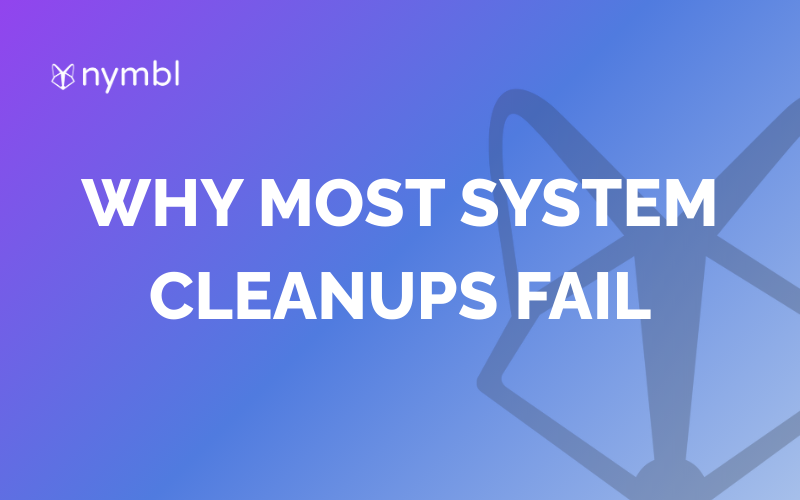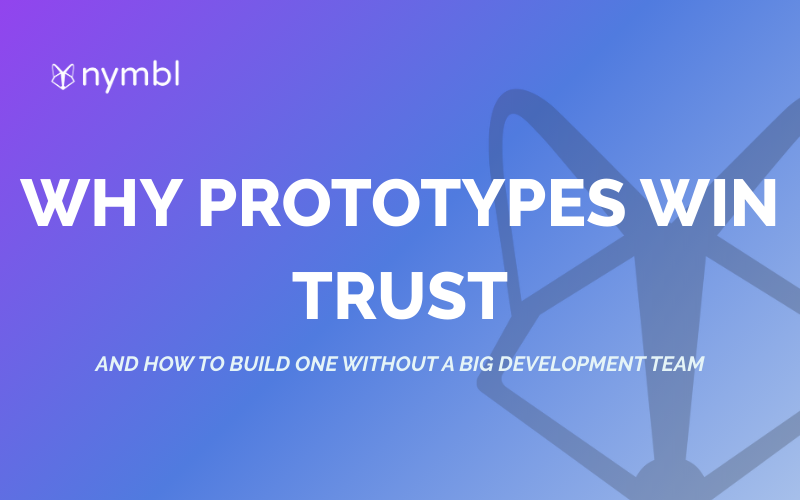For an enterprise-level company, custom software is a key component to running and managing all the moving parts that create a successful business. From customer service to content management, there is a broad spectrum of tasks and services that custom software solutions are able to manage efficiently to keep up with a growing business and meet your business's specific needs. One of the major considerations for enterprise software is security threats. It goes without saying that security should be a main priority when developing software. All enterprise companies are at risk of cyber-attacks and data breaches that put your client's personal information, as well as the reputation of your company, at risk.
With so much at stake, it is vital to approach the development process with security best practices in mind. This is why hiring a software development company is worth considering. Companies like Nymbl offer expertise in enterprise-level software development while ensuring compliance with security standards and protecting your data from vulnerabilities.
As you begin the process of developing custom enterprise software, you may have a few questions in mind: what are security best practices for custom enterprise software development? How can Nymbl help you incorporate security features in your custom enterprise software?
What Are Security Best Practices for Custom Enterprise Software Development?
During custom software development, a good developer will keep in mind security best practices that include the following key components:
Implementing authentication functions is among the most crucial when developing software. Authentication mechanisms ensure that only those authorized are able to access sensitive information and data through a series of checkpoints. For example, role-based access control ensures employees are only capable of accessing the information necessary to fulfill the functions assigned to their role.
Different authentication processes include multi-factor authentication (MFA), certified-based authentication, SAML, adaptive authentication, and more. Each system has its own method of limiting permissions and preventing unauthorized access to data and information.
- Data Encryption
Data protection is one of the most crucial aspects of security to consider, as there are so many methods hackers use to attempt to mine data. Data encryption ensures that when sensitive data is intercepted by unauthorized personnel, that data is illegible. The existing data is rearranged into ciphertext through a mathematical algorithm that can only be deciphered through the correct key.
Data encryption is a vital component to meeting compliance requirements, as several frameworks require encryption and key management. For example, frameworks that store an individual's healthcare information must remain secure to comply with HIPAA standards as well as other regulations and require some form of data encryption.
- Code Reviews
Also referred to as peer reviews, code reviews assess whether or not the code is functional and safe. During this process, a reviewer will look for bugs, edit lines, and ensure the coding solutions are the most optimal for achieving the desired effects and that the software is operating with secure coding.
Code reviews will also pinpoint vulnerabilities to cyber threats and incorporate any missing security measures. This is a particularly crucial step in the development process for custom enterprise-level apps since the more customized and scalable the app is, the greater the risk of encountering cybersecurity risks.
- Penetration Testing
What better way to prevent cyber attacks than to step into the shoes of the attacker? Penetration testing simulates real-time cyber attacks using the same common methods to determine whether or not the software is operating with robust security. Penetration testing will very quickly pinpoint where software is vulnerable to security breaches and provide an accurate picture of what kind of security issues your development team must fortify your software from.
Your team can simulate real security incidents like SQL injection or cross-site scripting (XSS) and not only test the security measures in place but also test your team's incident response process and their knowledge of security protocols if a breach were to happen.
- Monitoring and Assessing Post-Production
Having a development team that monitors your software after it goes live is crucial to ensuring that all the work you have done to incorporate security measures is maintained. Aside from common cyber hacks, your software is vulnerable if it is not properly updated on a regular basis. Dated software or dependencies can weaken your defenses, and unmonitored existing systems can develop security holes over time if not attended to on a regular basis.
How Can Nymbl Help You Incorporate Security Features in Your Custom Enterprise Software
Developing custom software is one of the best ways to ensure you meet your unique business needs, achieve scalability, and maintain a competitive advantage. With custom software comes the concern for data security and overall cybersecurity.
Developing efficient software that meets unique needs while also maintaining robust security seems like a daunting task at first. However, with Nymbl's team of experts, you will have the support you need to develop enterprise-level software that you can rely on. From brainstorming to maintaining the software once it's deployed, Nymbl is there for every step of the software development process.
This includes all the security measures and testing that goes into making sure your software is protected. Instead of sinking time and money into slow development processes, rely on Nymbl's team to utilize their expertise in development tools to streamline the development process and ensure optimal security for your company.
Conclusion
For most enterprise companies, security is one of the most important factors to consider when developing custom software. Ensuring security best practices when developing custom software is one of the best ways to protect your sensitive data.
Security best practices include, but are not limited to the following key components: authentication, data encryption, code reviews, penetration testing, monitoring and assessing post production.
While it may seem overwhelming to develop a custom enterprise-level software that also complies with security standards, Nymbl is here to help. With their team of experts, you can rest assured that not only will Nymbl help you navigate security best practices, but they will be with you every step of the development process to ensure your custom software meets your unique needs and protects your data and information in a manner that is cost-effective and efficient.






.png)


